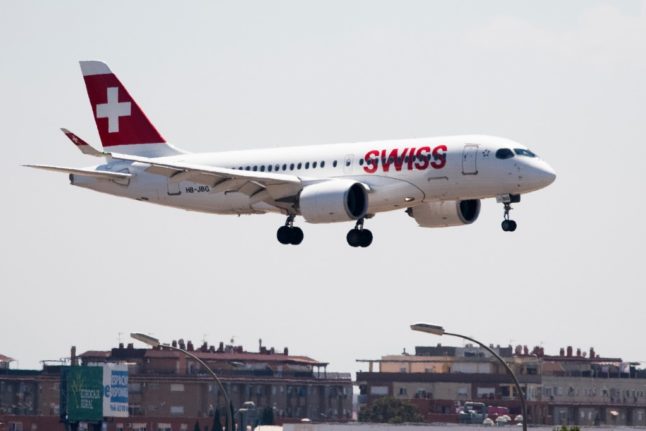Summer holidays are just around the corner and the epidemiological situation is improving in many parts of the world. Does this mean we can finally travel abroad again?
Unless the pandemic worsens in the next few weeks, there are some promising signs that international travel is picking up.
Some countries are easier to get into than others, so you need to consider whether the entry regulations in place, such as quarantine requirements, make the trip worthwhile.
READ MORE: When can foreign tourists come to Switzerland again?
First, let’s look at neighbouring countries.
Italy
Italy, which has traditionally been one of the most popular destinations for Swiss tourists due to its proximity and access to the sea, is aiming to open the country to tourists in mid-May.
Visitors who have had two doses of Covid vaccine approved in the EU —including Pfizer / Biontech and Moderna used in Switzerland — recovered from the disease, or tested negative 48 hours prior to travelling (and have adequate proof) , will be allowed entry without restrictions.
France
Another popular destination for Swiss tourists, France is open to residents of Switzerland. No quarantine is required.
But if you live further than 30 km from the French border or intend to stay in the country longer than 24 hours, you will need a negative PCR Covid test as well as a declaration that you are symptom-free and have not been in contact with any coronavirus cases.
You can find the relevant forms, and the exempt groups, here.
The permission forms for trips exceeding 10km from one’s home are no longer needed, and the curfew, which has been in place for months, will be pushed back gradually, ending altogether on June 30th.
Germany
Everyone travelling to Germany by airplane must present a negative coronavirus test certificate no older than 48 hours before boarding.
Germany also requires a 10-day quarantine for people coming from high-incidence areas. But as Switzerland is not on that list, no quarantine is required.
What if you simply want to go shopping across the border?
Swiss residents who have been fully vaccinated are now allowed to drive into the neighbouring German state of Baden-Württemberg.
In addition to those who have been fully vaccinated, people who have contracted coronavirus between 21 days and three months prior will also be allowed to cross the border.
But those who have had the virus more recently will need to show evidence of a negative PCR test in order to enter Germany.
Austria
Austria is set to relax its strict coronavirus quarantine on May 19th for most EU countries, including Switzerland.
The quarantine requirement will also be waved.
However, it is not certain yet whether this system will actually be implemented or if Austria would adopt a system which places entire countries on a risk list, or would do this on a regional basis, as Switzerland does for neighbouring nations.
However, even though travel to these four countries is more or less unfettered — or will be, in coming weeks — keep in mind that the quarantine requirement is in place for some regions when returning to Switzerland.
Right now, 15 regions of bordering states are on Switzerland’s quarantine list.
UPDATE: Which countries are currently on Switzerland’s quarantine list?
But as the Federal Office of Public Health (FOPH) updates this list roughly every two weeks, some regions, and countries, may be removed (or added) at the time of your travel.
What about destinations that are further afield?
Many countries still have travel restrictions in place, while others, like India, are in the throes of the pandemic.
The question which arises often is: “when can I travel to the United States”?
The US has been off limits to foreign tourists since the beginning of the pandemic in 2020, and it remains so to this day.
UPDATE: When will Americans be allowed to travel to Switzerland again —and vice-versa?
There is, however, tentative hope that the country could re-open in the near future, with US media reporting that President Joe Biden may begin lifting travel restrictions soon.
This link (in German) has an updated country-by-country information about where people from Switzerland are allowed to travel right now, and under what conditions.
However, travel rules will likely change by summer, as increasing number of people across Europe and other countries are getting vaccinated and nations, including Switzerland, are ready to launch immunity cards.
The hope is that these internationally-recognised vaccination certificates will enable people who have been immunised, as well as those who have tested negative and who have recently recovered from the disease, to travel.
READ MORE: Switzerland promises Covid-19 passport ‘by the summer’
Should you book your foreign trip now or wait?
Given all the uncertainties, waiting is a good idea.
There will be more clarity about travel restrictions in other countries as time goes by. Plus, once the restrictions are lifted, or at least relaxed, more airlines will start operating more flights to various places.
This means you will be able to travel from point A to point B via a more direct route than presently, when you have to travel all over the map to get to your final destination.




 Please whitelist us to continue reading.
Please whitelist us to continue reading.
Member comments